I Don’t Track My Macros But When I Did…
During my keto journey I never counted my macros for the meals or drinks I consumed. My focus was intermittent fasting, always eating leafy green salads with a side of meat twice a day, with one keto treat and drink lots of water. I never weighed the ingredients for my salads, or meat or counted the carbs in my keto treats. However, I always checked the carbs and sugar levels of all the ingredients and foods I bought. If the carbs or sugar levels were too high I wouldn’t buy it.
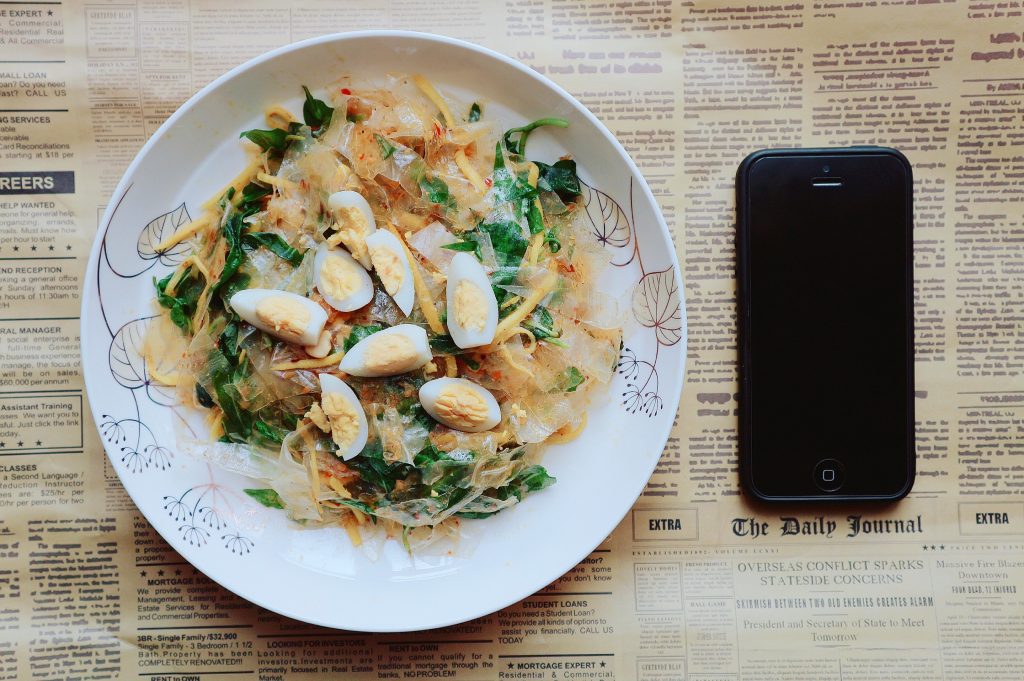
So if I didn’t track my macros how did that affect my keto journey? I started keto on September 18, 2017 at 99kg and my goal weight was 85kg. Then three months later on December 20, 2017 I reached my goal, weighing in at 84.1kg. Fast forward to today seven months later, I have stuck with keto and lost a few more kilos and hover around 80kg which I have been able to maintain. So to answer the question, I was able to have success with keto and not track my macros!
I Tracked My Macros and the Results Were Interesting
However, out of curiosity I wanted to see the macros of all the meals and drinks I was consuming. I wanted to see how they measured up with the benchmark keto percentages. I downloaded the Macros app and for seventeen days I tracked my macros. After setting up the app, it suggested the following benchmark levels for a ketogenic diet:
Using the Macros app I tracked the macros for all my meals and drinks (except for water) between May 18, 2018 and June 3, 2018 and the results were interesting:
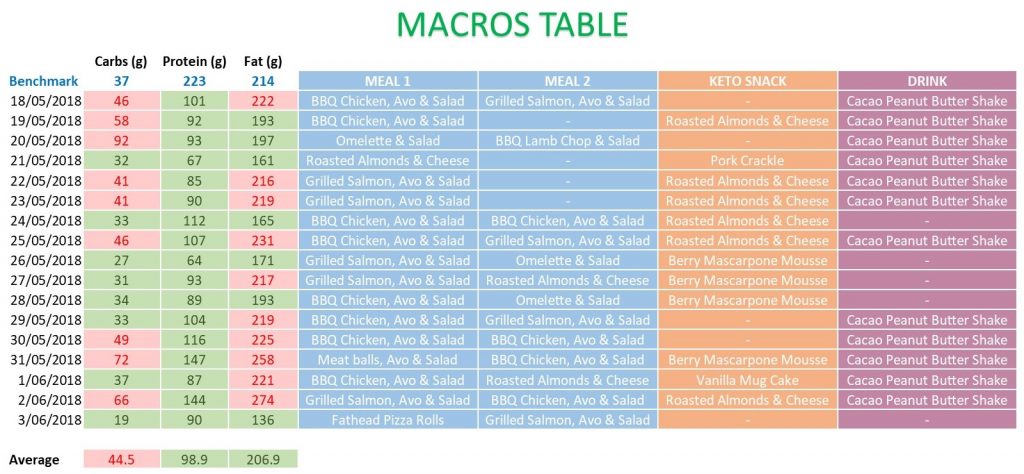
The Results
When I reviewed the table there were a number of things that stuck out to me:
1. Variety
Wow my meals lacked a lot variety but that didn’t bother me. Although they may be bland to some I really love eating fresh salads and vegetables, pair it with some form of meat and I’m good to go. As I mentioned in my earlier post, I’m no Jamie Oliver. So my main priorities with my meals is that they are quick and easy and always included salad. So you’ll notice that a lot of my first meals were BBQ chicken and a salad. That’s because my first meal is lunch, and most of the time that was a visit to the Woolworths deli close to the office.
2. Protein
I ate a lot of chicken and salmon but that’s because I can’t eat too much red meat or end up with gout. As a result of not eating a lot of red meat I was well below my protein levels. Those levels of protein in keto are totally acceptable. The extent it affected me physically or physiologically I’m not completely sure. However, it does raise concerns in relation to building muscle mass but that’s not the aim of my exercise program. So on that basis I’m not too concerned with this.
3. Carbohydrates
I exceeded my carbs for just over half of the days that I tracked my macros. On three days in particular I really blew out my carbs. On review of my meals I think my biggest issue with my carbs is my recent addiction with roasted almonds and cheese as well as my end of day shake. I usually have about half a cup of roasted almonds with a couple slices of cheddar cheese straight after lunch. Unfortunately it’s probably the culprit for driving up my carbs, so I need to keep an eye on this.
4. Fats
I was able to maintain pretty good levels of fats intake and on most days exceeded the benchmark. In keto hitting or exceeding fat levels are fine. To ensure I hit the necessary fat levels I would always try to make sure I had at least one avocado and a shake every day. A lot of people do bullet proof coffee everyday to hit their fat numbers, I don’t do coffee so I make a cacao shake instead. I normally ended the day with a shake made up of cacao, peanut butter, coconut milk, coconut oil, thickened cream, cinnamon, chia seeds and a few drops of stevia. Overall the macros for this shake are 14g carbs, 13g protein and 70g fat. The shake is an excellent boost for my fat levels but unfortunately it also takes up 38% of my carbohydrates benchmark.
So Is Tracking Macros a Waste of Time?
Yes and no! What?
Why tracking macros IS a waste of time!
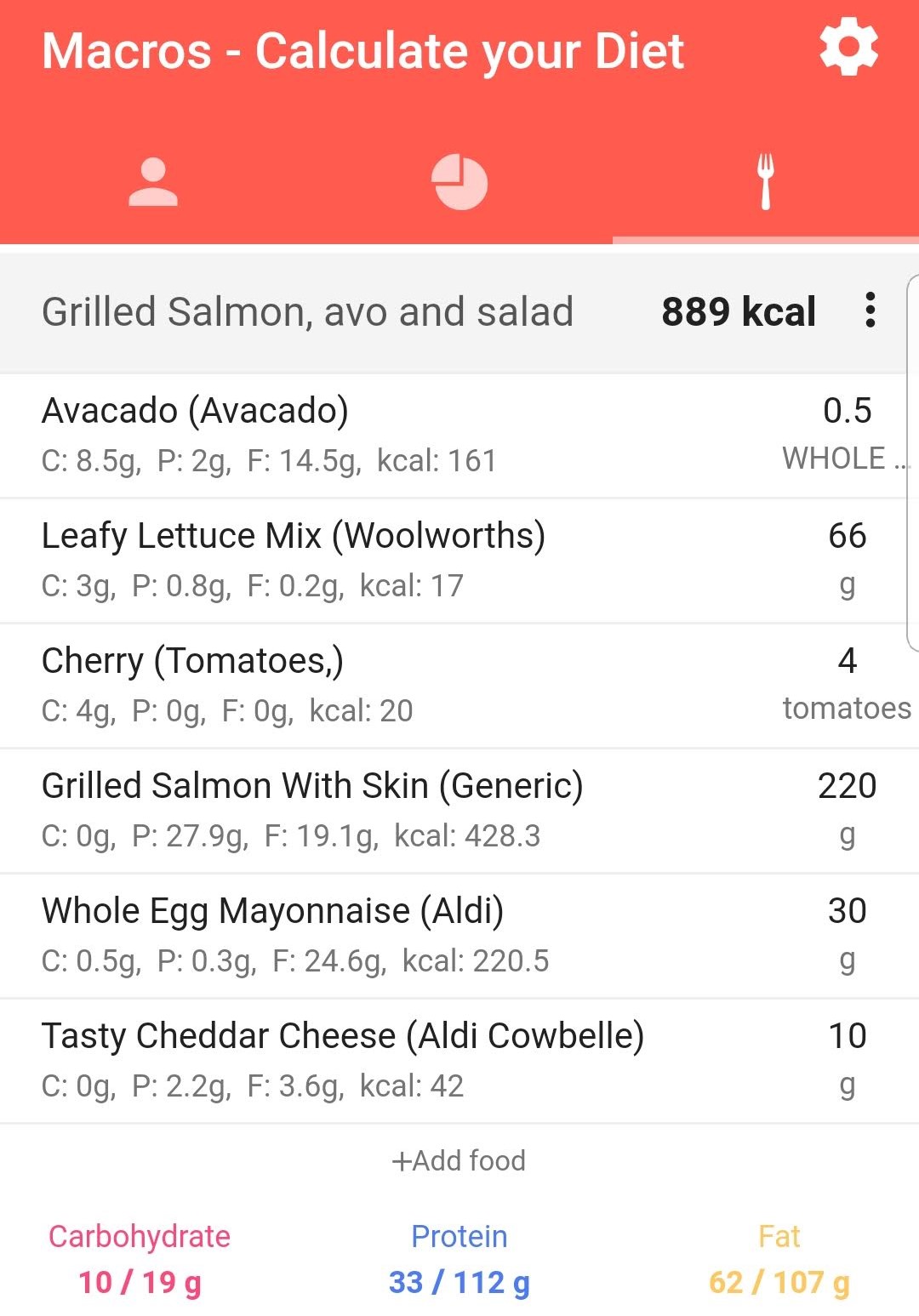
The reason I said yes is because I had success and reached my goal and I never counted my macros. I made sure I stuck to a plan which was intermittent fasting, lots of salad with meat and keto treats. Yes, to some my meal plan during this period was boring but for me it was very manageable, and I enjoyed it and that helped me to stick to my plan.
To be honest I found tracking my macros a really tedious task having to build my meals with the ingredients I was using everyday. Thank goodness Macros app had a copy and paste for each meal. For me it seemed like wasted time having to do this everyday.
The other issue is accuracy. I was building my meals in the Macros app but the macros of my ingredients was built upon the foods/ingredients database managed by Macros app. From what I can see I believe that database can be updated by users. So if they input incorrect macros details, then your macros tracking will be incorrect too. I could have uploaded the macros for each of the items I was using but hey I wasn’t that committed to expend more time then I was by already inputting my meals.
The database seemed to include a lot of Australian based ingredients which was handy. However, where I couldn’t find an exact match for certain ingredients or brands, I would use something that was close enough to that item. The other thing to consider is that other macros tracking apps may have better databases then the one I used.
Why tracking macros is NOT a waste of time!
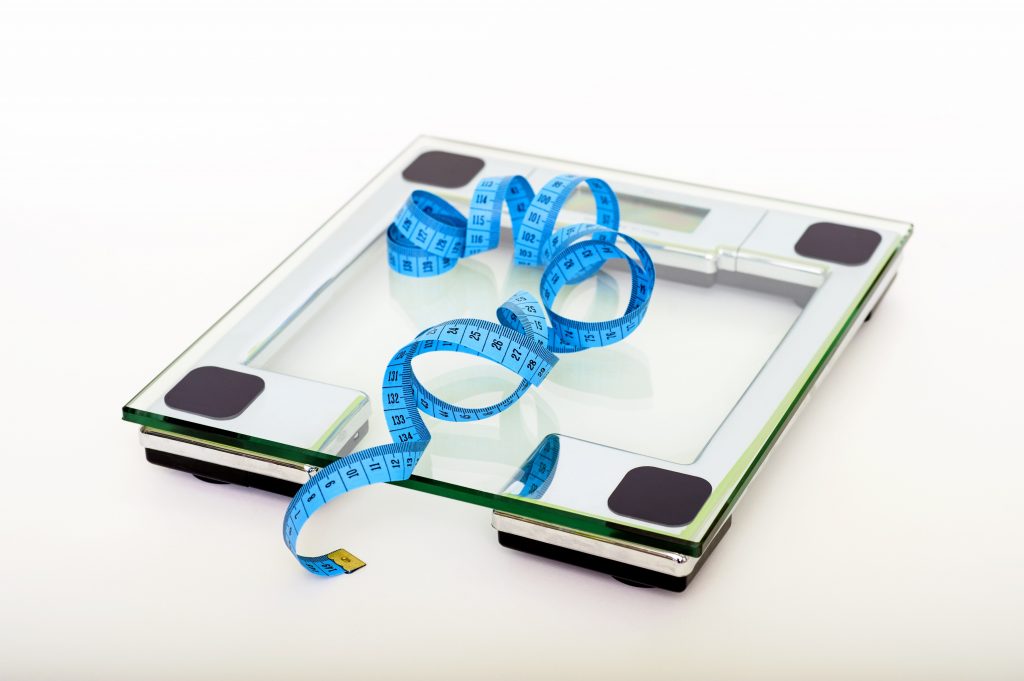 After reading my reasons for not tracking macros you’re all thinking it’s a big waste of time. So why would I consider tracking my macros?
After reading my reasons for not tracking macros you’re all thinking it’s a big waste of time. So why would I consider tracking my macros?
If you have issues while on keto then tracking macros could be helpful. I notice in one forum in particular (which I won’t mention – it’s not the NZ one) that people always complain that they are not progressing or going backwards and threaten to quit keto. If people genuinely are having issues tracking macros for meal plans can help to provide solutions.
For example:
Carbohydrates – Just by tracking my meals for that period I identified that my carbohydrate intake at times was more than the required benchmark. Carbs are converted to glucose which will inhibit progression towards being fat adapted and reaching ketosis. I identified that my roasted almond snacks and cacao shakes were the culprits for blowing out my carbs. This provides an opportunity to provide feedback and adjust my future meal plans accordingly.
Proteins – My protein level intake was good but if they exceeded the benchmark this could be an issue. Excessive protein levels could trigger gluconeogenesis. Well in short, gluconeogenesis is a process where excess protein is converted by the liver to glucose for the body to use as energy. This is not conducive for getting into the state of ketosis. So again, by tracking macros where protein levels are shown to be too high, adjust the protein intake in future meal plans.
Fats – I’ve noticed that in forums a lot of people struggle to get their fat levels, so tracking macros can help to find foods and ingredients that could boost fat intake for the day. After all this is such an important factor for helping the body to be fat energy adapted and stay in ketosis.
So that pretty much sums up my thoughts on tracking macros. If you have a well balanced keto meal plan that provides results, tracking macros won’t be necessary. If you don’t have time to fiddle with apps, don’t do it. However, if you think that your meals maybe suspect or you have issues with keto, tracking macros will help provide the feedback to possibly resolve your issues. The only other reason to track macros is you are a control freak and you have to know the numbers. In the end it’s up to you.
In any case I hope that helps in relation to whether you should or shouldn’t track your macros. Also feel free to drop a comment below with your own personal thoughts on tracking macros, the more we share the more we learn.
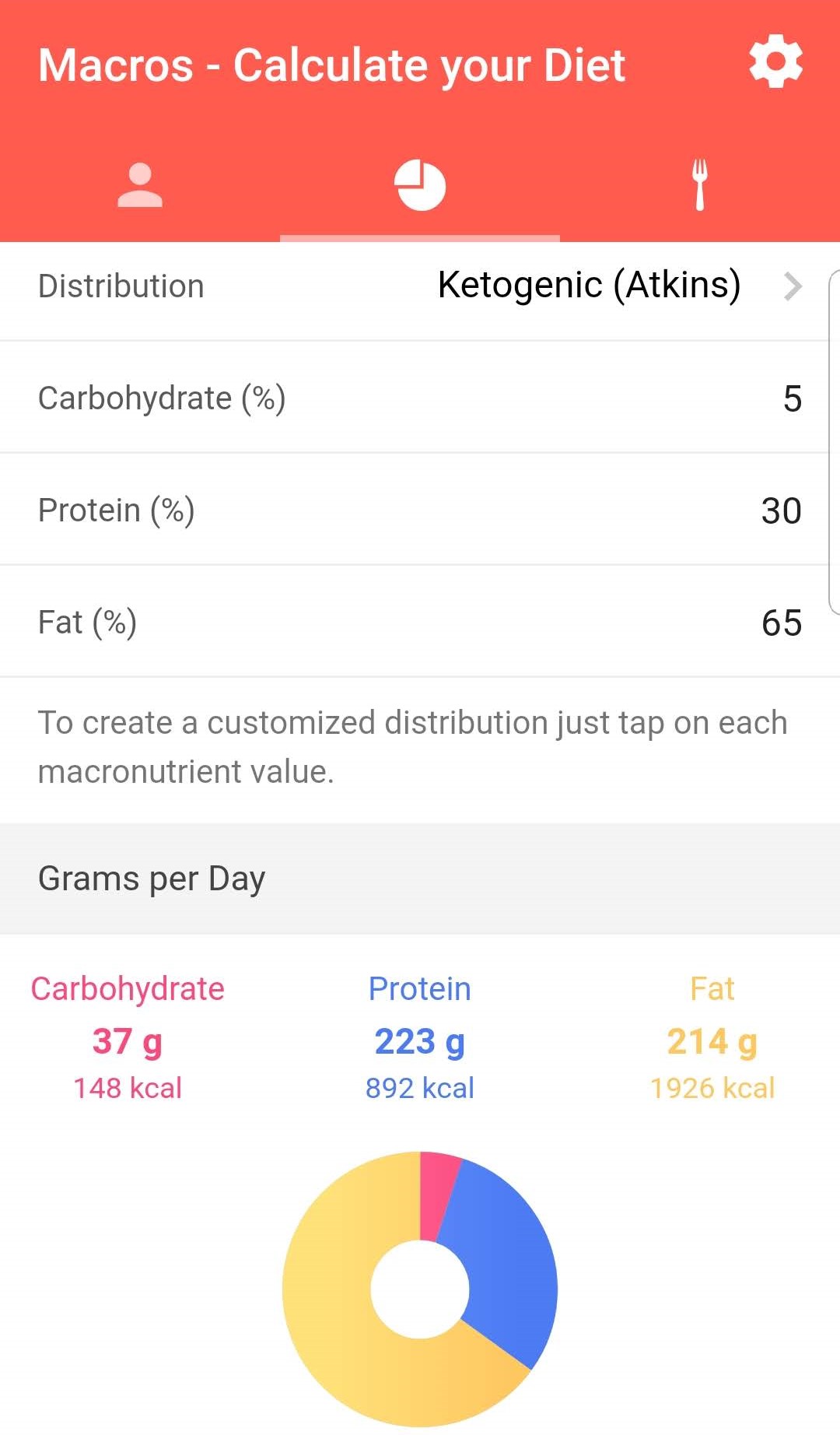
One thought on “I Don’t Track My Macros But When I Did…”
Very interesting post! I definitely learned a lot from this. Thank you so much for sharing this information!